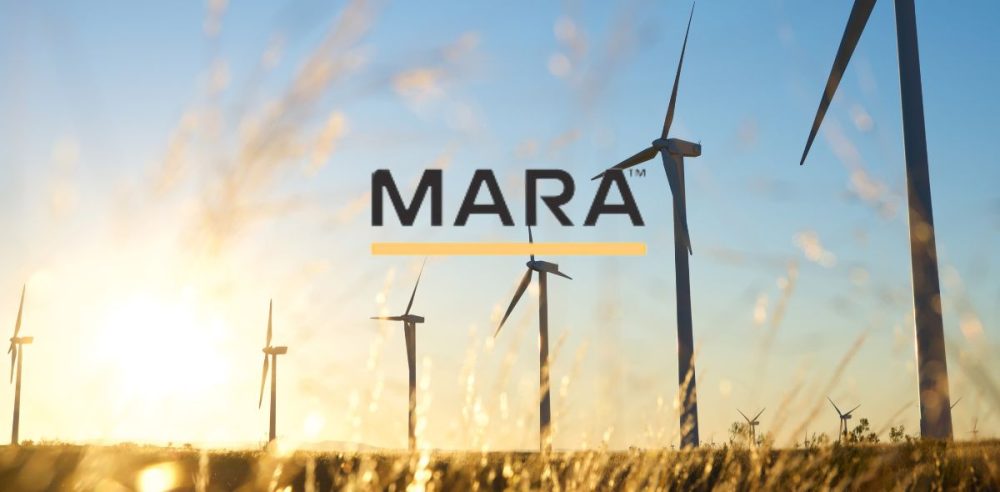One Bitcoin technology company has found a way to circumvent some of the controversy over the amount of electricity it uses: the firm has purchased a Texas wind farm to power its mining operations.
Florida-based MARA Holdings recently announced the purchase of a 114-megawatt wind farm in Hansford County located in the Texas Panhandle. Although the wind farm is in Texas, it is not a part of the Electric Reliability Council of Texas (ERCOT) energy grid, which powers most of the Lone Star State. Instead, the farm is part of the Southwest Power Pool energy system, which supplies electricity to Oklahoma, Kansas, Nebraska, South Dakota, and North Dakota.
Once the sale is completed in Q1 2025, the wind farm will be removed from the SPP energy grid and used to power the company’s Bitcoin mining enterprise in far North Texas.
Large-scale Bitcoin mining requires a tremendous amount of electricity as vast banks of computers churn their way through complex mathematical puzzles, the process through which the Bitcoin cryptocurrency is created. In addition, the facilities must run fans to keep the computers from overheating, exacerbating the energy drain.
Cryptocurrency mining operations in the U.S. account for somewhere between .06% to 2.3% of all electricity consumption in the nation, according to an estimate by the U.S. Energy Information Administration (EIA). One Bitcoin transaction takes an estimated 1,449kWh to complete — enough to power an average U.S. household for approximately 50 days, according to the Digiconomist’s Bitcoin Energy Consumption Index.
As cryptocurrency mining increased in the U.S. over the last few years, so did concerns over its effects on the electric power industry, such as the “strains to the electricity grid during periods of peak demand, the potential for higher electricity prices, as well as effects on energy-related carbon dioxide (CO2) emissions,” as the EIA reported.
The New York Times reported that one Bitcoin mining company, Bitdeer, made millions of dollars by NOT operating during a crippling record-breaking winter ice storm that hit Texas in February 2021. Winter Storm Uri knocked out power to thousands of homes and businesses across the state, but Bitdeer, located just outside Austin, still had power and kept operating its rows upon rows of computers, using enough energy to power 6,500 homes.
Just after midnight, the ERCOT power grid operators ordered the mining company to cease operations, as the grid was dangerously close to complete failure. Under the terms of its agreement with the company, the state paid Bitdeer an average of $175,000 per hour to keep its computers offline. Over the next four days, Bitdeer raked in more than $18 million for not operating, all paid for with Texans’ tax dollars.
Last month, the Public Utilities Commission of Texas (PUCT) implemented a new rule requiring large-scale cryptocurrency operations to register with the PUCT and ERCOT, a measure aimed at ensuring the reliability of the grid during high demand. The mining facilities must disclose their location, ownership structure, anticipated electricity demand for the next five years, and their actual energy consumption from the previous year, Newsweek reported. The rule was imposed in response to Senate Bill 1929, passed in 2023.
However, that rule does not apply to MARA Holdings as it is not connected to the ERCOT grid and will soon be the sole controller of the wind farm it has contracted to purchase.
“This acquisition serves as a blueprint for how the energy and data center sectors can collaborate to create long-term value while advancing sustainability initiatives,” MARA Chairman and CEO Fred Thiel said in a press release announcing the purchase. “By repurposing machines and energizing them with 100% renewable, zero-marginal energy cost, we’re leveraging renewable resources that would have otherwise been curtailed, reducing our bitcoin production costs through vertical integration, and demonstrating MARA’s commitment to environmental stewardship.”


